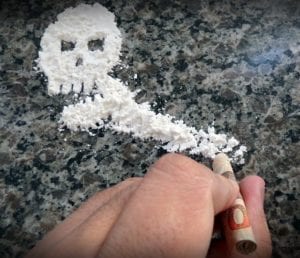
Welcome back. We’ve been discussing the subject of substance abuse and how CPS involvement can make life even harder for suffering parents, as opposed to better. We’ve also started looking at ways this can be overcome, both her in Michigan and in society in general. Dr. Mark Calarco, national medical director of American Addiction Centers, says that four things need to change in order for us to address the issue of addiction – People, Cause, Stigma and Media. We’ve talked about the first one on the list, so let’s keep moving…
The Cause:
Dr. Calarco explains that people who wrestle with addiction are frequently viewed as being weak-willed, unwilling to change, and even flawed in some way. This couldn’t be further from the truth. In truth, addiction is not the result of a person’s unwillingness to stop taking drugs, or even a person’s damaged or flawed personality. Instead, it is the reason that people take drugs to begin, with according to his theory.
According to Dr. Calarco, a classic example is diabetes. Previously, diabetes was thought to be exclusively the result of a person’s dietary choices. As a result, people often thought of those who developed diabetes as being weak-willed individuals who couldn’t control their eating habits. Now, however, we know that diabetes is only partly a result of diet. Genetic disposition plays a huge role in diabetes. Drug addiction is very similar says Calarco’s theory.
This is supported by Dr. Alan Leshner, MD, a widely published Professor of Psychology who also served as the Director of the National Institute on Drug Abuse. “Drug addiction is a brain disease that develops over time as a result of the initially voluntary behavior of using drugs. It is as if drugs have hijacked the brain’s natural motivational control circuits, resulting in drug use becoming the sole, or at least the top, motivational priority for the individual.”
The Stigma:
This is a big one. There is a massive stigma attached to drug abuse both in Michigan and around the world. In part, this is a result of the other three items on the list. Think about it – if the people using drugs are viewed as “dirty” and “disgusting” and the cause is viewed as a “flawed” personality and a “weak will” then it only makes sense that there would be a stigma attached to substance abuse issues. But that has to change is we want to overcome this issue or at least if we buy into these theories.
Part of what makes this particular issue so dangerous is that, due to the stigma, people are often afraid to admit that they have a problem. As a result, they don’t actively seek out the help they need to overcome their addiction. This is never more true than when it comes to CPS. If a parent is afraid that CPS will take their children away if they admit to a drug addiction, they are unlikely to get help. So they stay silent, the problem gets worse, and then the likelihood that CPS will step in and remove their children becomes even greater.
Until we are able to look past the “mark of disgrace” that we’ve attached to this particular issue, we will have limited success at overcoming it in the future. Only when parents are free to seek help, without fear of having their families torn apart, are we likely to see a decrease in drug addicted parents. By allowing people to step forward and share their struggles, without judgment or condemnation, we free them to get the help they really need. Which, when you think about it, is what we really want for them to begin with.
Brandy Thompson, a CPS defense attorney here at The Kronzek Firm, says that clients are sometimes surprised when she urges them to admit that they have a problem and accept help. “Continuous denial in the face of direct evidence often causes more damage to your case than admitting the problem and then carefully constructing a network of services to provide the help you need while controlling any “damage” done by the admission.”
Join us next time, as we look at the final issue on Dr Calarco’s list – the media, and then discuss how we can implement these changes here in Michigan. Until then, if you or a loved one are battling CPS, or believe that you are at risk of losing your children to Child Protective Services, call The skilled CPS defense attorneys at The Kronzek Firm. We are available round the clock at 866 766 5245 to help you.

